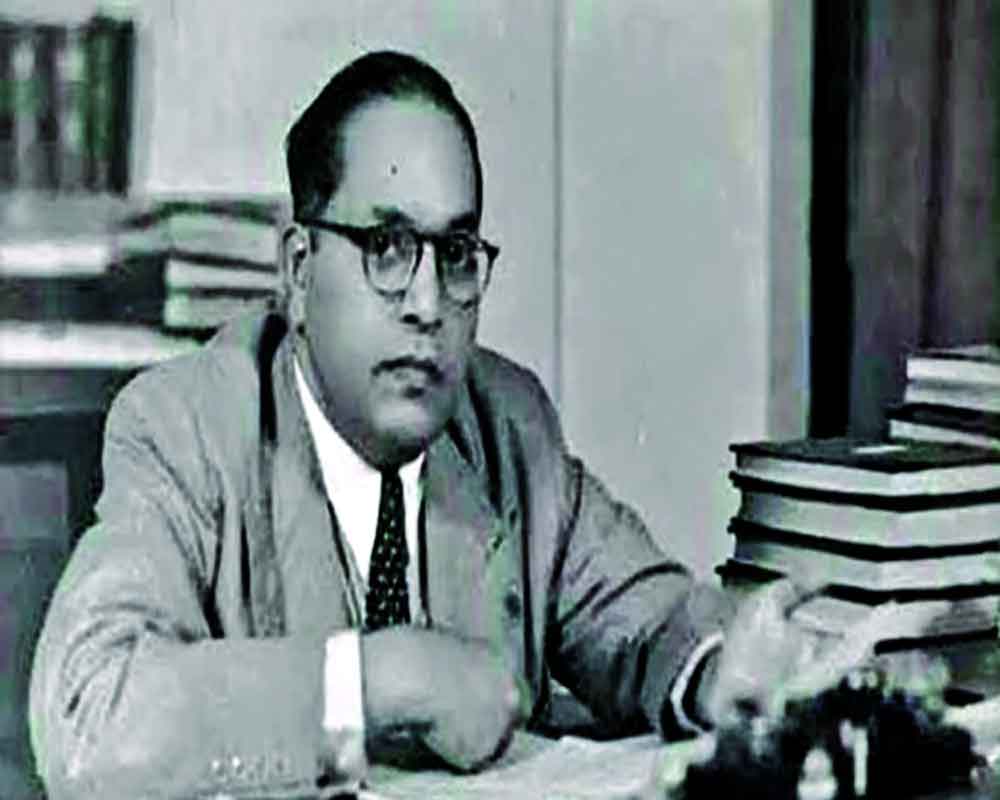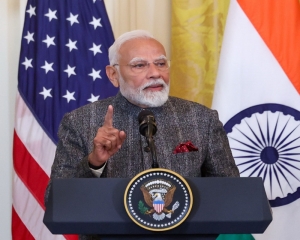As the principal architect of the Indian Constitution, Dr BR Ambedkar laid down the bedrock of fundamental rights and protections for all citizens
Bharat Ratna Dr BR Ambedkar, born on April 14, 1891, will ever be revered for his contributions towards building a just and inclusive India. He was a guardian angel of social justice, a harbinger of inclusivity, justice and equality. As an eminent jurist, economist and social reformer, he dedicated his life to eradicating caste-based discrimination and uplifting the marginalised communities in our country. As the architect of the Indian Constitution, he ensured fundamental rights and safeguards for all citizens.
As his legacy continues to inspire millions globally even today, standing as a beacon of hope for deprived communities striving for dignity and equality, there is a lot we can learn and inspire ourselves from his vision of social justice, which was profoundly rooted in the principles of equality, liberty and fraternity. He recognised the deep-rooted inequalities entrenched within Indian society, particularly the caste system, which relegated millions to a life of discrimination and oppression.
He fought for the abolition of untouchability, which is against the teachings of the Vedas. the Atrocious caste system had jolted him from within. To give shock treatment to Hindu society, he embraced Buddhism, which is so deeply rooted in Indian ethos and value system. He was not inimical to Hindutva. He had resentment against Hinduism but he was not opposed to Hinduism. He did not embrace any other alien religion though Islamic and Christian scholars tried their best to influence him.
Coming from a very poor family, Dr Ambedkar suffered multiple social and economic hardships but he did not give up. He fought against the odds bravely. He was the 14th child of his parents. His father gave him good Zanskar and used to share stories and thoughts of great saints like Sant Tukaram, Sant Gyaneshwar, Sant Shiromani Ravidas, teachings of the Ramayana and the Mahabharata. He did his matriculation in 1908 from Elphinstone High School. He studied Economics and Political Science at Elphinstone College. In 1912, he got a degree from Bombay University.
With a scholarship from Maharaja of Baroda, he went to Columbia University, New York City from where he got a Master’s degree in June 1915 after completing his thesis on ‘Ancient Indian Commerce.’ In 1916, he went to the London School of Economics. In 1920, received the D Sc by London University! He also went to the University of Bonn, Germany. In June 1927, he was awarded a Doctorate by the University of Columbia. He was a rare Indian politician of his time who studied at Columbia University, LSE and University of Bonn.
Dr Ambedkar inspires us to imbibe the principle of ‘Study and Struggle’ to create an incredible niche for himself as an intellectual as well. His vision of social justice emphasised the importance of education and political representation for the oppressed castes, viewing them as essential tools for empowerment and emancipation. He laid the foundation for a more inclusive and just society. He believed in the idea and ideals of dialogue. He was against armed struggle to restore the glory of every human being. He believed in the principle of co-existence, following the teachings of truth, non-violence and respect for the people of all castes and religions.
Dr Ambedkar viewed education not merely as a means of acquiring academic qualifications but as a catalyst for the liberation of the oppressed and marginalised communities.
He emphasised the importance of universal access to education, particularly for those historically denied opportunities due to caste discrimination and social inequality. He was also an ardent champion of the cultivation of values such as empathy, justice and equality. According to him, the cultivation of the mind should be the ultimate aim of human existence. He was also a great champion of women’s empowerment.
He famously said: “I measure the progress of a community by the degree of progress which women have achieved.” Dr Ambedkar held strong convictions about national unity and integrity, recognising them as fundamental pillars for the progress and stability of any nation. Dr Ambedkar advocated for a society where every individual had equal rights and opportunities, emphasising the need for social harmony and mutual respect. He also played a significant role in shaping India’s labour laws. His tireless efforts as India’s first Law Minister paved the way for landmark legislation like the Factories Act, the Minimum Wages Act and the Industrial Disputes Act, which continue to serve as cornerstones of labour rights and industrial progress in the country.
He stressed the significance of upholding the principles of democracy, secularism and constitutionalism to ensure the protection of the rights of weaker sections of society and the preservation of national unity.
His vision for India was one of inclusivity and pluralism, where diversity was celebrated as a source of strength rather than division. He saw untouchability as not just a moral wrong but also a significant impediment to the social progress and unity of India. He advocated for its complete abolition, stressing the need for legislative measures and social reform.
As we remember Dr BR Ambedkar on his birth anniversary today, let us express our gratitude to him and commit ourselves to a democratic, secular and inclusive nation.
(The author is the Governor of Haryana. The views expressed are strictly his personal)



























